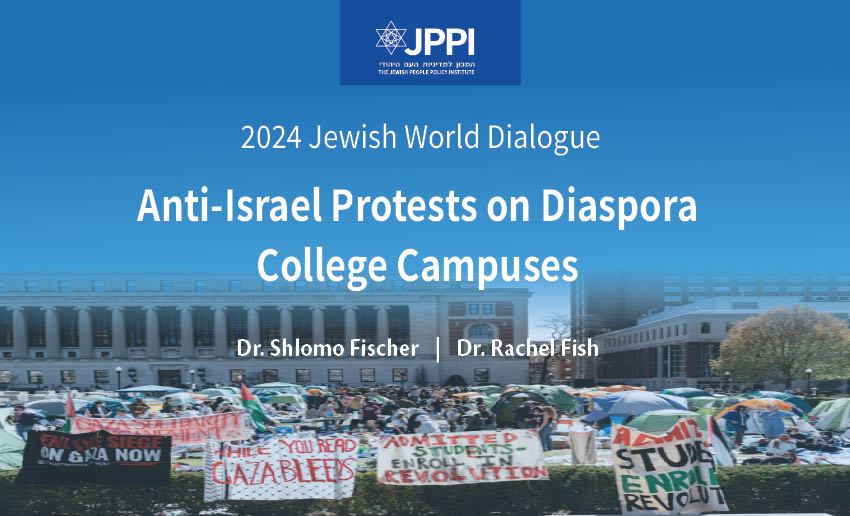.A new report reveals a disturbing reality on U.S. and European campuses since the October 7 attack: 78% of Jewish students reported harassment, alienation, and fear.
Dr. Shlomo Fischer and Dr. Rachel Fish
Dr. Shlomo Fischer and Dr. Rachel Fish

Policy Recommendations
Based upon the group discussions, and the description and analysis in the next section, we suggest the following policy steps are taken by major Jewish and philanthropic organizations in the Diaspora:
1. Israel education should be greatly expanded and made an integral part of Jewish education. It should include Israeli history and information about the Palestinians and the Israeli-Arab conflicts. Israel education should not be afraid to confront the challenging and problematic aspects of life in Israel and the policies of the Israeli government. It should be encouraged to convey and discuss various approaches to Zionism and the major policy issues confronting Israel, such as the Israeli-Arab conflict, the status of the West Bank (Judea and Samaria), and matters of religion and state.
2. Jewish communal life should reflect the variety of opinions vis-à-vis Israel and Israeli government policy. Organizations that have a view that dissents from the mainstream view (that of the federations and major organizations such as the AJC and ADL.) should be able to convincingly show that they are “authentically Jewish.” That is, that their membership and leadership is overwhelmingly Jewish, and that the organization has concrete or intellectual roots in Jewish history and a commitment to Jewish culture (language, literature, religion etc.). For example, one cannot say that the Jewish Workman’s Circle, which is neutral about Israel (reflecting different streams within it) is not authentically Jewish.
3. Jewish philanthropists and the organized Jewish community should devote resources to documenting and exposing Arab (Qatari, Saudi, Emirati) and Iranian funding and mobilizing pro-Palestinian protests. The various channels through which funding flows should be exposed. Efforts to “buy influence” in the United States and how social media is used for this purpose, especially by Iran and Russia, should also be exposed.
4. Jewish philanthropists and the organized Jewish community should, together with conservative, traditionally liberal, and Christian groups contemplate strengthening institutions of higher learning dedicated to excellence and free intellectual inquiry. They should establish objective, transparent criteria of free inquiry and openness to differing points of view, and support those institutions that meet those criteria.. Such institutions would treat students and faculty as autonomous individuals and not members of identity groups, while making robust efforts to recruit minority students and top-tier academic talent.
5. We recommend that Jewish and pro-Israel communities and academics initiate intellectual projects to mitigate and challenge progressive identity dominance in education and especially in higher education. These projects should aim at returning universities to their primary task of research and teaching in a spirit of free and open inquiry (challenging the totalitarian aspect of contemporary progressivism). It should also challenge simplistic narratives of “oppressed” and “oppressors” and other predictable scripts featuring “good guys” vs. “bad guys.” A project of this sort might start with funding research and fellowships, but, If necessary, in time it could consider founding its own peer-reviewed journals and, perhaps, new academic departments.